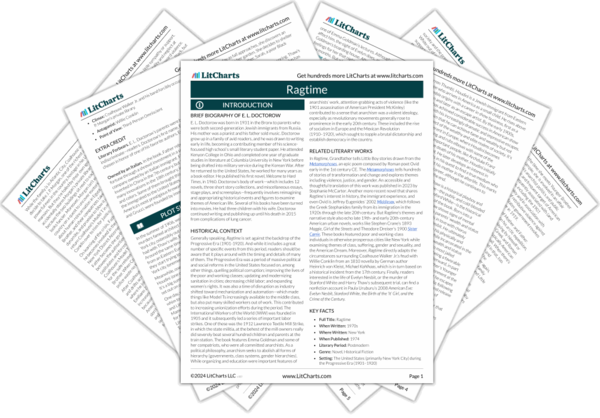Although imprisonment isn’t an ideal verdict, Thaw nevertheless gets off lightly for a cold-blooded, premeditated murder conducted in full view of hundreds of witnesses. It’s clear that he and his family are accustomed to buying the privileges they want or need. It also becomes crushingly clear to Evelyn in the process of her divorce not just that the Thaws have placed an exact monetary value on her service to the family, but that it’s such a small amount. Deprived of her wealth, influence, and notoriety—having failed in her attempt to hold on to the American Dream—Evelyn sinks into obscurity and depression.


